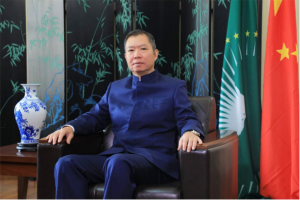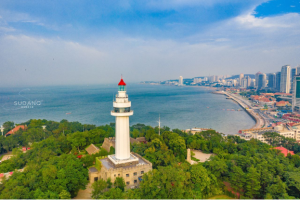The Nation- Uganda says its oil dream is alive despite intensified criticism from several groups, which this week lodged a complaint in the US against insurer Marsh that is brokering underwriting services for the $5 billion East African Crude Oil Pipeline (Eacop).
On February 7, at least 10 human rights and environmental groups in Uganda and Tanzania accused Marsh of violating guidelines for responsible business conduct for the company’s role in Eacop. The complaint was lodged with the US National Contact Point at the Department of State.
Last year, financial services provider Britam Uganda dropped out of the insurance consortium for Eacop after a complaint was filed at the World Bank office, alleging the insurer breached International Finance Corporation performance standards.
The complaint against Marsh came barely a week after Eacop completed acquisition of 47.22 acres of land in Kakumiro District for the main camp and pipe yard site.In the meantime, construction of the coating plant is also ongoing at Nzenga, Tanzania, officials said..
Eacop managing director Martin Tiffen signalled readiness by the project’s sponsors to conclude land acquisition processes by mid-2023 to pave way for construction of the 1,443km pipeline that starts from Hoima in western Uganda to Tanzania’s Indian ocean Tanga Port.
The project’s critics allege that Eacop has displaced about 100,000 people without compensation, but Tiffen said 81 percent of the project-affected persons in Uganda have signed compensation agreements, while 69 percent have received payment.
“An insurance broker’s role is often invisible to the public, which allows them to avoid accountability, but Marsh deserves to be scrutinised,” said Coleen Scott, legal and policy associate at the Inclusive Development International (IDI).
The US-based IDI is one of the forces backing non-governmental organisations in Uganda and Tanzania that have put pressure on sponsors of Eacop to abandon the project on climate and human rights basis.
Guidelines A summary of the complaint says that Marsh should be scrutinised based on OECD guidelines, which set out principles and standards for responsible business conduct across a range of issues, including human rights and the environment. While the guidelines are non-binding, they are an important and widely accepted international standard for ethical business conduct.
On January 24, as Uganda launched its first drilling rig for the Chinese-operated Kingfisher oilfield, police blocked a public debate on the impacts of Eacop and arrested its organiser Bob Barigye, which IDI claims is a sign of increasing repression against critics of the project.
The complaint also argues that Marsh is going ahead to broker insurance for the project on the back of inadequate consultations with the affected communities and threats to natural resources.
Kenyan company turning newspapers into pencils, cutting deforestation in the process African News- MOMO Pencils, based in Athi River, Machakos County, came up with an effective way to reduce the number of trees cut down every year to make simple writing pencils.
The company, headed by brothers Mahamud Omari and Rashid Omari, sources its raw materials, in this case glue and old newspapers, locally. They currently import the graphite. According to CEO Mahamud Omari, the old newspapers cost them just KSH 70 ($0.70) to KSH 100 ($1) per-kilogram.
He says the price of the finished product depends on the quality and quantity, but it ranges from KSH 15 to up to KSH 50 per-pencil. Pencils are an important part of life, they’re used for sketching, drawing and in schools. The United Nations says some eight million trees are cut down every year to make pencils, contributing to deforestation.
came up with an effective way to reduce the number of trees cut down every year to make simple writing pencils. “If you look at the present day, we are suffering from climate action and the best way is to reduce the number of trees that are cut for any purpose,” he says.
“So, for that matter, 82,000 trees that are cut every year to make pencils, we provide an alternative. We take the newspaper and turn it into a viable product which is a pencil, providing an option for those people to use instead of wooden pencils.”
The process of making pencils starts with newspaper collection.
The newspapers are cut into the right size, then graphite is glued to the pieces.
The pieces of newspapers and graphite are then put into a roller, which rolls and compresses them into pencils.
They’re then left in the sun for three days to dry off.
They’re lastly put into a final compressor, sharpened and packaged.
Mahamud says in the next five years, the company aims to ensure every child in Kenya will use their pencils.
“We want each and every child in Kenya who goes to school to use our pencils and at the same time, be able to plant a tree through our pencil. That way we will reduce the number of trees cut,” he says.
“We will also provide an option and reduce the number of wooden pencils in the market.”
Sustainability consultant and climate change expert Nickson Otieno believes such efforts will reduce the number of trees cut down, while at the same time reducing the amount of wastepaper that’s dumped or burnt.
“Eight million trees are cut down every year to make pencils, and that contributes to deforestation and climate change. Also, about 85 billion tonnes of wastepaper are generated every year and 32 billion tonnes of this wastepaper is dumped and burnt down. Now, this contributes also to climate change, but on the other side, we can address climate change by making pencils from recycled paper,” he says.
According to the UN, over 13 million hectares of forests are lost annually to deforestation, out of which 36 percent is for paper manufacturing and 42 percent is for manufacturing timber-based products that constitutes about 18-20 billion pencils.
Yesterday’s news, tomorrow’s pencils.
THE ETHIOPIAN HERALD TUESDAY 14 FEBRUARY 2023





